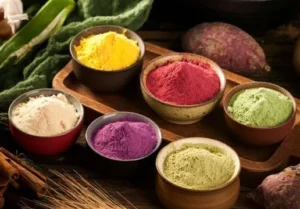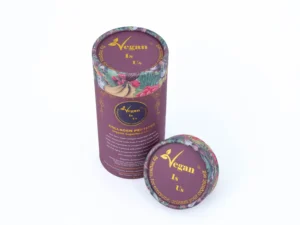Milk Thistle and Its Alternatives for Liver Support: A Comprehensive Guide
The liver plays a vital role in maintaining overall health, supporting detoxification, metabolism, digestion, and immune function. Given its importance, ensuring liver health is crucial to our well-being. Among the many natural remedies available, milk thistle (Silybum marianum) has long been hailed for its liver-supporting properties. However, there are several effective alternatives that can complement or replace milk thistle, depending on individual needs. This guide explores the history, benefits, and mechanisms of milk thistle, as well as its alternatives, to offer a holistic approach to supporting liver health naturally.
1. The Importance of Liver Health
The liver is responsible for over 500 functions in the body, including:
- Detoxification: Filtering harmful substances and toxins from the blood.
- Metabolism: Processing nutrients, fats, and proteins.
- Bile Production: Aiding digestion and the breakdown of fats.
- Immune Support: Removing pathogens and supporting immune function.
When the liver becomes overburdened—whether by toxins, poor diet, excessive alcohol consumption, or medications—it can lead to conditions like fatty liver disease, hepatitis, or cirrhosis. Supporting liver health through diet, lifestyle, and natural remedies can help prevent these issues and ensure the liver functions optimally.
2. Milk Thistle: A Time-Tested Herb for Liver Health
2.1 History and Traditional Use
Used for over 2,000 years in traditional medicine, particularly in Europe and the Mediterranean, milk thistle has a rich history of promoting liver and gallbladder health. Ancient scholars such as Pliny the Elder and Dioscorides documented its benefits, and it continues to be a staple in herbal medicine today. The name “milk thistle” comes from the plant’s distinctive milky-white veins, which legend suggests were associated with the Virgin Mary’s milk.
2.2 Active Compounds in Milk Thistle
The primary active ingredient in milk thistle is silymarin, a complex group of flavonolignans that includes silybin, silydianin, and silychristin. These compounds are primarily concentrated in the seeds of the plant and are responsible for its liver-protective effects.
2.3 Mechanisms of Action
Milk thistle supports liver health in several key ways:
- Antioxidant Activity: Silymarin helps neutralise free radicals and reduce oxidative stress, which can damage liver cells.
- Anti-inflammatory Effects: It inhibits inflammatory pathways, reducing liver inflammation.
- Hepatoprotective Properties: Silymarin stabilises liver cell membranes, preventing toxins from entering and causing cellular damage.
- Liver Regeneration: By stimulating protein and DNA synthesis, it promotes liver cell regeneration.
- Bile Production: It enhances bile flow, aiding digestion and detoxification.
2.4 Benefits of Milk Thistle
- Liver Detoxification: Assists in removing toxins, including alcohol, heavy metals, and environmental pollutants.
- Supports Liver Function: Improves liver enzyme levels and overall liver health.
- Fatty Liver Disease: Research suggests that milk thistle may help reduce fat accumulation and inflammation in non-alcoholic fatty liver disease (NAFLD).
- Hepatitis Support: May improve symptoms and liver function in individuals with viral hepatitis.
- Antioxidant Protection: Protects liver cells from oxidative damage caused by toxins and ageing.
2.5 Dosage and Forms
Milk thistle is available in various forms, including capsules, tablets, tinctures, and teas. The standard dosage is 200–400 mg of silymarin per day, typically divided into two to three doses. Always follow product instructions or consult a healthcare provider to determine the right dosage for your needs.
2.6 Safety and Side Effects
Milk thistle is generally safe for most individuals, though some may experience mild side effects, such as:
- Digestive upset (e.g., bloating, diarrhoea)
- Allergic reactions (rare)
- Headaches
It may interact with certain medications, including:
- Diabetes medications: May lower blood sugar levels.
- Blood thinners: May increase the risk of bleeding.
- Immunosuppressants: May alter their effectiveness.
As with any supplement, it’s advisable to consult a healthcare professional before using milk thistle, especially if you have a medical condition or are taking medications.
3. Effective Alternatives to Milk Thistle
While milk thistle is an excellent choice for supporting liver health, several other natural ingredients can also provide similar benefits. These alternatives can be used alone or in combination with milk thistle for enhanced liver support.
3.1 Turmeric (Curcuma longa)
Benefits
- Anti-inflammatory: Curcumin, the active compound in turmeric, reduces liver inflammation.
- Antioxidant: Protects liver cells from oxidative damage.
- Detoxification: Enhances the liver’s ability to process and eliminate toxins.
- Fatty Liver Support: May reduce fat accumulation and improve liver enzyme levels.
How to Use
- Add turmeric powder to meals (e.g., soups, curries, smoothies).
- Take curcumin supplements (standard dose: 500–1,000 mg per day).
Considerations
- Pair with black pepper or piperine to improve absorption.
- Avoid high doses if you have gallbladder issues or are on blood thinners.
3.2 Spirulina
Benefits
- Nutrient-Rich: Contains essential vitamins, minerals, and amino acids that support liver function.
- Detoxification: Binds to heavy metals and toxins, aiding their removal.
- Antioxidant: Reduces oxidative stress and inflammation in the liver.
How to Use
- Add spirulina powder to smoothies or juices.
- Take as capsules or tablets (standard dose: 1–3 grams per day).
Considerations
- Choose high-quality, organic spirulina to avoid contamination.
- Start with a small dose to avoid digestive discomfort.
3.3 Beetroot
Benefits
- Bile Production: Stimulates bile flow, aiding digestion and detoxification.
- Antioxidant: Contains betalains, which protect liver cells from damage.
- Nitric Oxide Boost: Improves blood flow to the liver, enhancing its function.
How to Use
- Drink beetroot juice or add roasted beets to salads.
- Take beetroot powder or supplements (standard dose: 500–1,000 mg per day).
Considerations
- May cause red or pink urine (harmless but can be alarming).
- Avoid if you have kidney stones or low blood pressure.
3.4 Dandelion Root
Benefits
- Bile Stimulation: Promotes bile production, aiding digestion and detoxification.
- Diuretic: Helps flush toxins through increased urine output.
- Anti-inflammatory: Reduces liver inflammation and supports healing.
How to Use
- Brew dandelion root tea or take as a tincture.
- Use dandelion root capsules (standard dose: 500–1,000 mg per day).
Considerations
- Avoid if you have gallbladder issues or are allergic to ragweed.
3.5 Goji Berry
Benefits
- Antioxidant: Rich in carotenoids and polysaccharides that protect liver cells.
- Anti-inflammatory: Reduces inflammation and supports liver regeneration.
- Immune Support: Enhances overall immune function.
How to Use
- Eat dried goji berries as a snack or add to smoothies.
- Take goji berry extract or supplements (standard dose: 10–30 grams per day).
Considerations
- May interact with blood thinners or diabetes medications.
3.6 Schisandra
Benefits
- Liver Protection: Promotes detoxification and protects liver cells.
- Adaptogen: Helps the body adapt to stress, supporting overall health.
- Anti-inflammatory: Reduces liver inflammation and oxidative stress.
How to Use
- Take schisandra extract or capsules (standard dose: 500–1,000 mg per day).
- Brew schisandra berries into tea.
Considerations
- May cause mild digestive upset in some individuals.
3.7 Artichoke Leaf
Benefits
- Bile Production: Stimulates bile flow, aiding digestion and detoxification.
- Liver Regeneration: Supports the repair and regeneration of liver cells.
- Antioxidant: Protects liver cells from oxidative damage.
How to Use
- Take artichoke leaf extract or capsules (standard dose: 300–600 mg per day).
- Brew artichoke leaf tea.
Considerations
- Avoid if you have gallbladder obstruction.
4. Lifestyle Tips for Liver Health
In addition to using herbs and supplements, adopting a liver-friendly lifestyle can further enhance liver function:
- Eat a Balanced Diet: Focus on whole foods, including fruits, vegetables, lean proteins, and healthy fats.
- Limit Alcohol: Excessive alcohol consumption is a leading cause of liver damage.
- Stay Hydrated: Water helps flush toxins from the body.
- Exercise Regularly: Physical activity supports metabolism and detoxification.
- Avoid Toxins: Minimise exposure to environmental toxins, such as pesticides and chemicals.
Key Takeaways
Milk thistle has long been recognised for its liver-supporting benefits, largely due to its active compound, silymarin. However, there are numerous other natural alternatives—such as turmeric, spirulina, beetroot, dandelion root, and schisandra—that offer similar benefits. These alternatives can complement or replace milk thistle depending on your personal preferences and health goals.
For more tips on plant-based living and to discover a range of products that support liver health and overall well-being, visit VeganIsUs. Our products and resources can help you embrace a plant-based lifestyle for improved vitality and wellness.
Always consult a healthcare professional before starting any new supplement, particularly if you have a medical condition or are taking medications. By combining these natural remedies with a healthy lifestyle, you can promote your liver’s health and enjoy long-term well-being.







